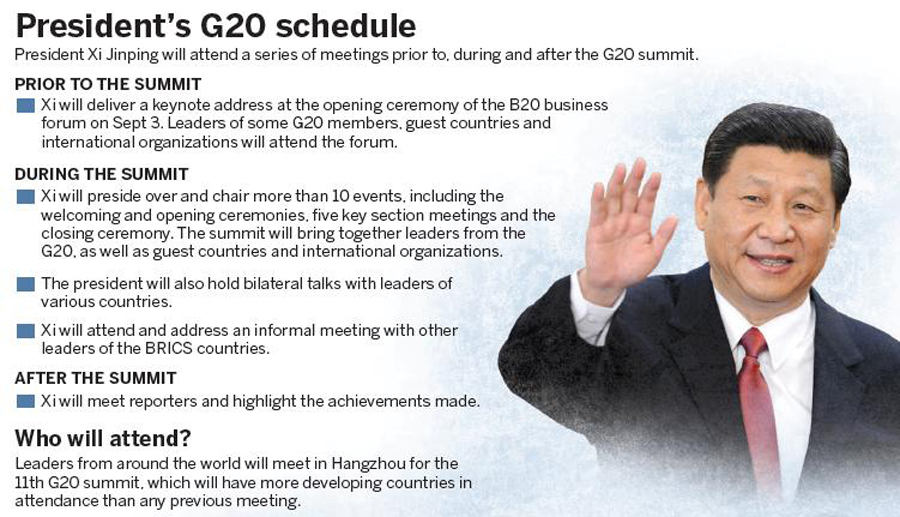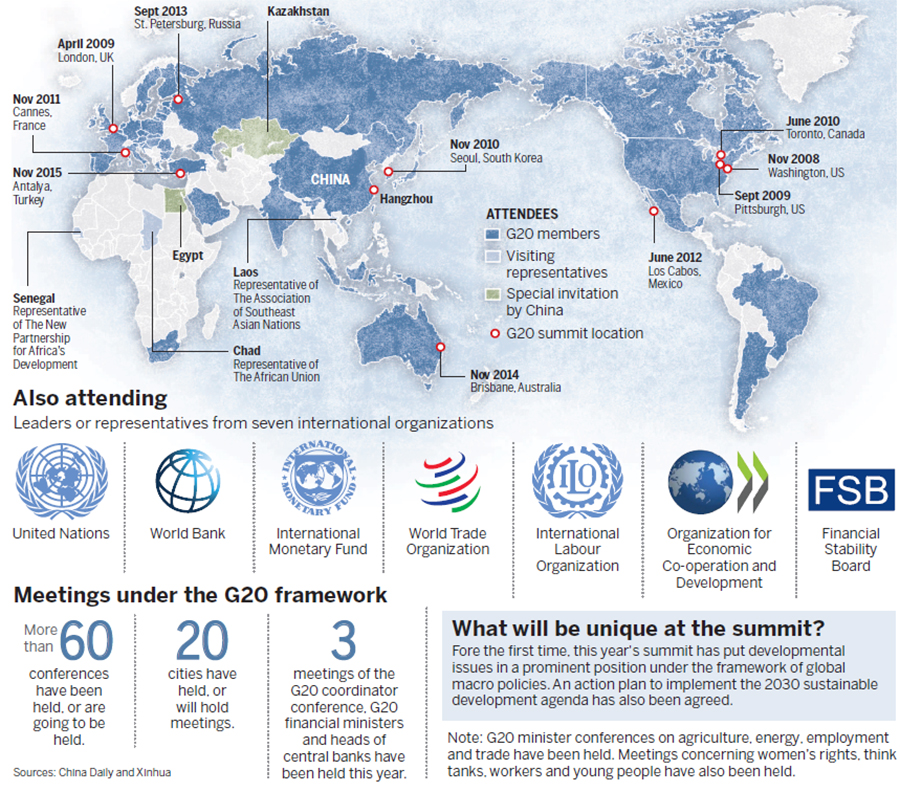








Working teams have been established to coordinate and implement potential action plans
Action, inclusiveness and foresight are all stressed by China's current leadership in domestic governance, and those qualities are poised to influence next month's G20 summit in Hangzhou, the capital of Zhejiang province, making it a milestone event for global growth, development and reform.
China hopes to transform the G20 meeting from a case-by-case, solution-seeking summit into an institutional long-term mechanism for ongoing debate.
On Monday, the Foreign Ministry for the first time revealed the detailed agenda for the upcoming summit, and also President Xi Jinping's busy schedule during the two-day event, when he will preside over more than 10 major activities.
It will be the first time China has hosted the event, and Xi's to-do list is indicative of its significance.
Since 2013, Xi has attended three G20 meetings - in the Russian city of St Petersburg, Brisbane in Australia and Antalya, Turkey - but the Hangzhou meeting will undoubtedly be the most important for him.
Under the theme "Building an Innovative, Invigorated, Interconnected and Inclusive World Economy", the Hangzhou summit will focus on critical issues in global growth and developmental reform.
Innovation, the new industrial revolution and the digital economy will appear on the agenda for the first time. More important, following a proposal by China, a number of special working teams have been established on these specific topics to supervise and coordinate the implementation of possible action plans and proposals.
Since the G20 first met in Washington in 2008, leaders attending the summits have passed many proposals and adopted a number of action plans. Still, problems remain for the global economy.
It takes time for some remedies, such as the reform of global governance, to take effect, but some previous prescriptions, although temporarily effective in boosting growth, have proved to be of little use in maintaining sustainable development.
For example, leaders of a number of developed economies have constantly pledged to strengthen coordination in formulating and implementing macroeconomic and financial policies, and have also resisted growing calls for protectionism in the wake of the 2008 financial crisis.
However, sometimes the pledges have resulted in little concrete action.
The globalization of the world economy means decisive growth factors are more concentrated in the developed economies, and development appears more exclusive than inclusive; about 12.5 percent of the global population still lives in poverty.
To address these problems, China last month hosted the first G20 trade ministers' conference in Shanghai, and established a foundation for institutional platforms for meetings of trade ministers.
China pushed the G20 to make global investment a guiding principle this year, which will evolve into the first multilateral investment regulation framework. Those efforts should facilitate global investment and trade.
These endeavors, and others, will help to turn the G20 into a long-term mechanism for the solution of global issues. The G20 is by no means just a club of 20 world powers strutting their resolutions, but the premier global forum for action and solutions.
